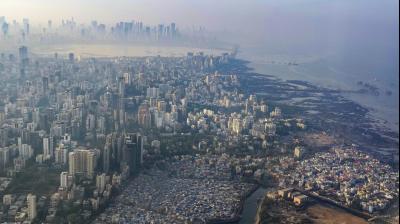New policy for water recycling
In lieu of the acute water crisis across the state, the water resources department has decided to frame a policy for recycling water and reusing it for industrial purposes.
In lieu of the acute water crisis across the state, the water resources department has decided to frame a policy for recycling water and reusing it for industrial purposes. The proposal was discussed in the cabinet meeting held last Tuesday but the finance minister kept it on hold saying it needed to be foolproof as it had the capacity to change the scenario of shortage of drinking water.
Senior officials from the water resources department said that even in big metropolitan cities like Mumbai, Pune and Nagpur, while wastewater was treated, about 80 to 85 per cent of it was not recycled but released back into water bodies. “The plan envisages construction of sewage treatment plants in major civic bodies across the state. The treated wastewater will be recycled and supplied to industries, thereby drinking water can be provided to people only for drinking and domestic consumption,” said a source.
Sources said that though the plan did come up for discussion in last week’s cabinet meeting, minister for finance and planning, Sudhir Mungantiwar, called for a foolproof plan.
With the proposed plan having linkages with industries, urban development, energy and agriculture among others, it was held back to seek a wider consensus and a foolproof policy. Sources added that besides industries, thermal and hydel power plants also needed water and hence, a wider consultation was required on the issue. All departments had been asked to come up with inputs within a month after which a broader policy on recycling of wastewater could be formulated.
Speaking to select media persons on Tuesday, minister for water resources, Girish Mahajan, said, “Departments of urban development and industries have been directed to submit a detailed cabinet note before the state cabinet in a month’s time.” He admitted that most civic bodies and industries in the state released wastewater directly into water bodies like rivers, thus polluting them and harming aquatic animals like fish and also mangroves and leading to contamination of water table in wells and borewells.
Thanking the rain gods, Mr Mahajan said, “We in India are lucky to get more than 4,000 mm rain every year. If a country like Israel, which receives only 200-300 mm rain, can fulfill its needs and supply water to nearby Palestine and Jordan, we should learn from them.”
Meanwhile, speaking to reporters, another senior government official disclosed that though initially, the policy would not compel all municipal corporations to set sewage treatment plants, in the next five years, they would have to do the needful. On the other hand, Mr Mungantiwar admitted to holding back the proposal as it lacked details on how much water went waste and how the policy needed to be implemented.


















